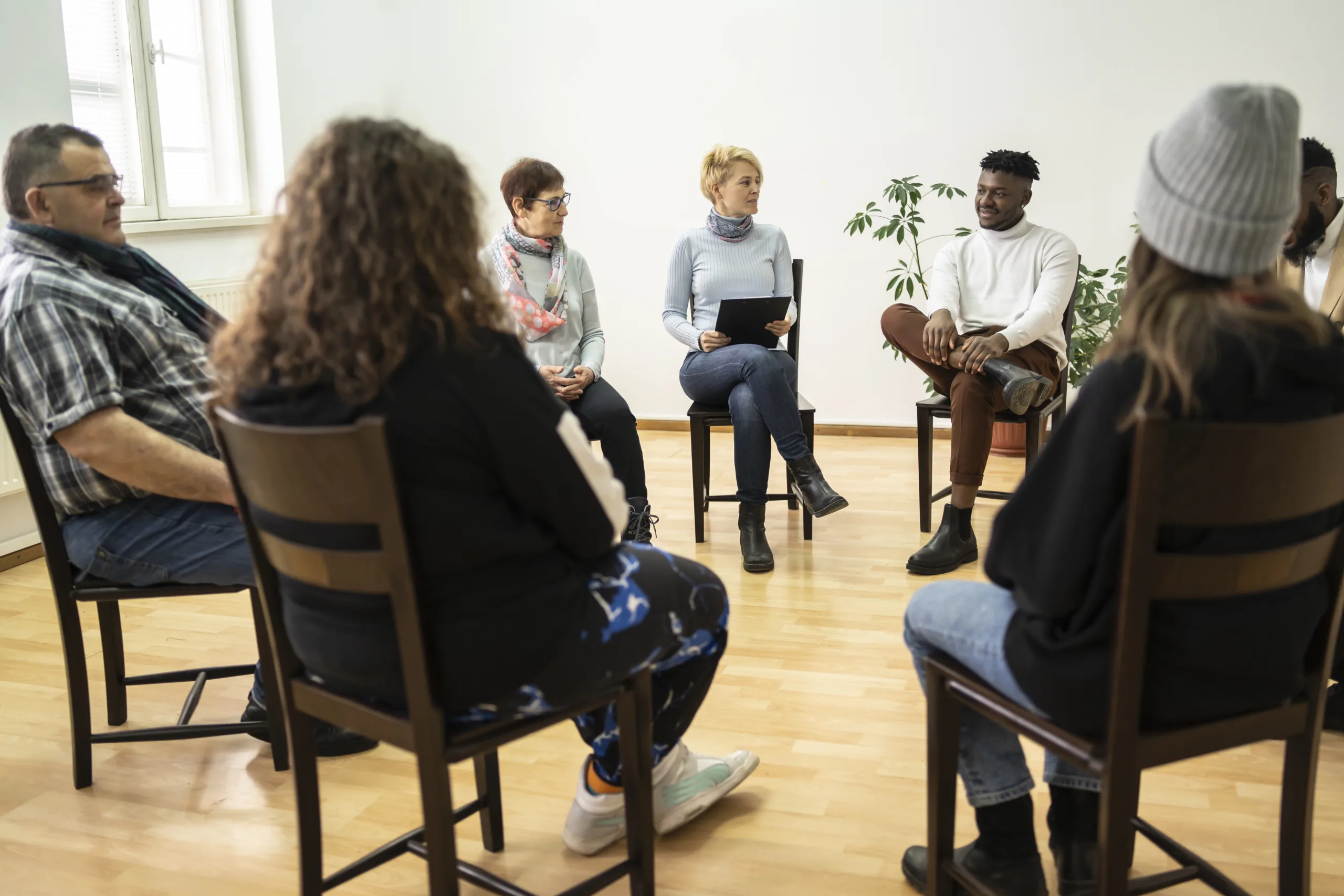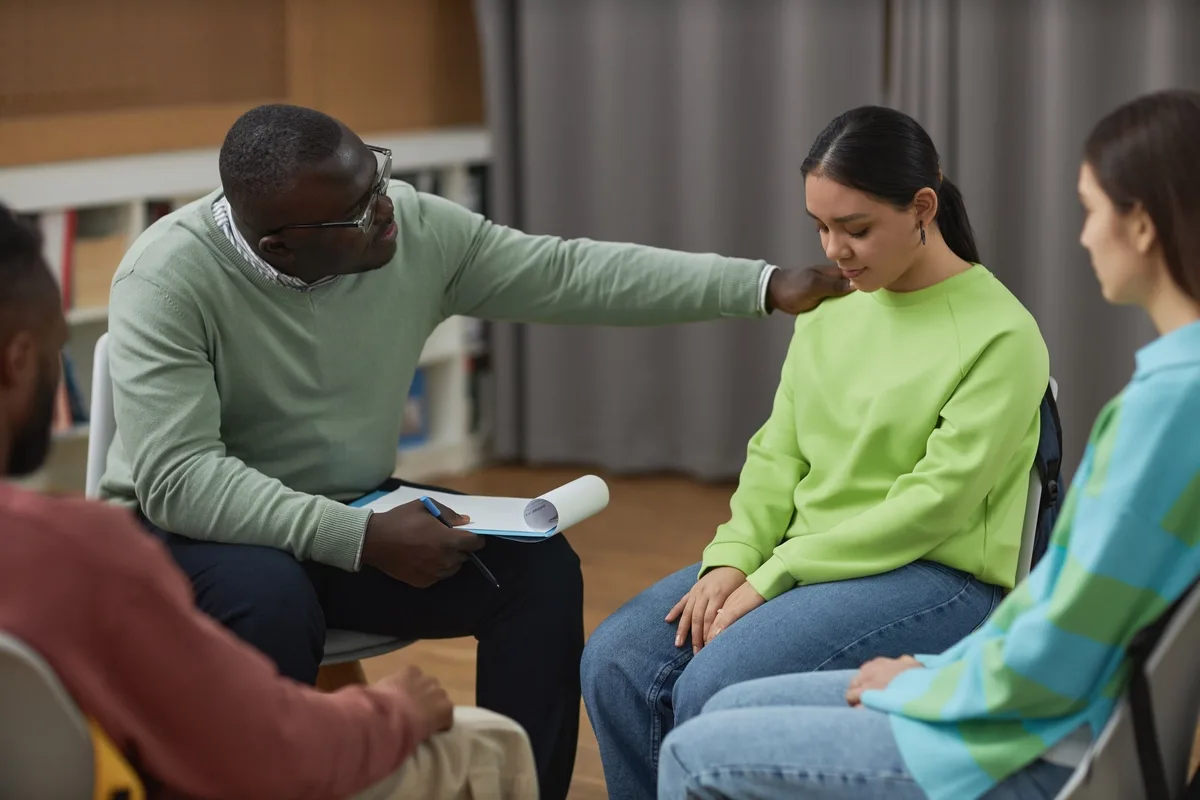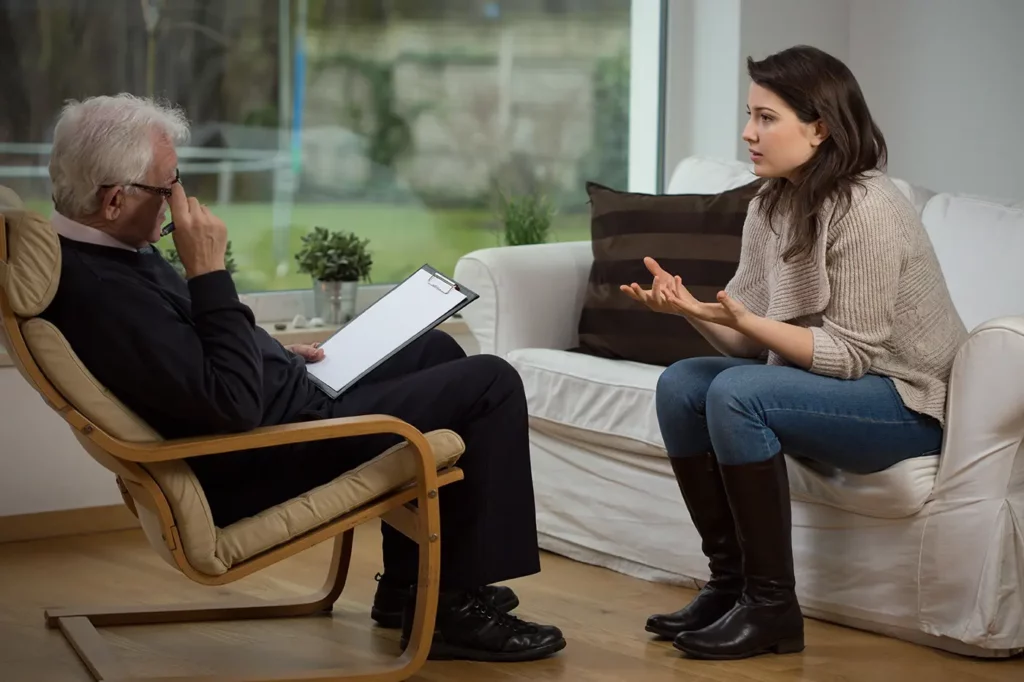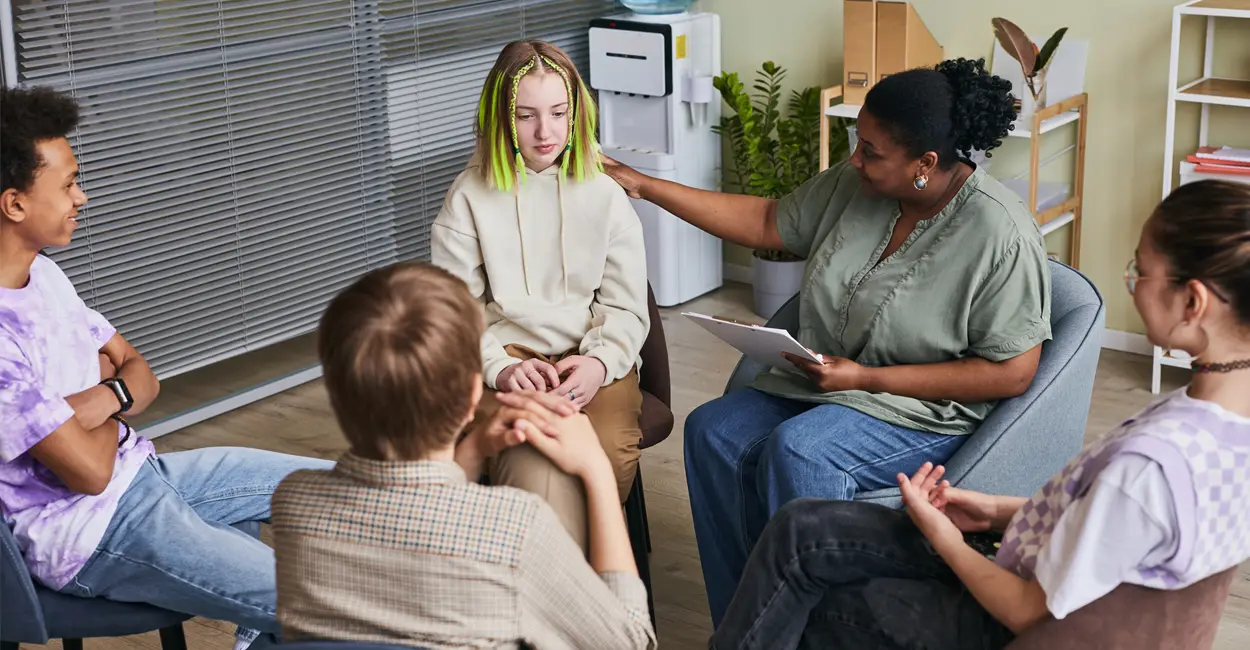24/7 Helpline:
(866) 899-111424/7 Helpline:
(866) 899-1114
Learn more about Group Therapy centers in Parker
Group Therapy in Other Cities

Other Insurance Options

EmblemHealth

UnitedHealth Group

Optum

MVP Healthcare

Multiplan

Magellan Health

Ceridian

CareFirst

Covered California

Premera

CareSource

Regence

BHS | Behavioral Health Systems

Health Net

AllWell

Ambetter

American Behavioral

Access to Recovery (ATR) Voucher

Optima

Molina Healthcare








New Paradigm Counseling
New Paradigm Counseling is a private rehab located in Castle Rock, Colorado. New Paradigm Counseling...

All Health Network
All Health Network provides counseling in an outpatient basis for individuals from all ages who are ...

1st Alliance Treatment Services
1st Alliance Treatment Services is located in Castle Rock, Colorado. 1st Alliance Treatment Services...

Compass Health Network – Sedalia
Pathways Community Health’s Sedalia, Missouri office is located at 1700 West Main Street and provide...






















AA – Alcoholics Anonymous – South Lafayette Avenue
AA – Alcoholics Anonymous – South Lafayette Avenue is a non-profit rehab located in Sedalia, Missour...

AA – Alcoholics Anonymous – West Pettis Street
AA – Alcoholics Anonymous – West Pettis Street is a non-profit rehab located in Sedalia, Missouri. A...

Central State MHC
Central State MHC provides substance abuse treatment in an outpatient setting for people in Jackson,...











































